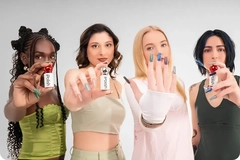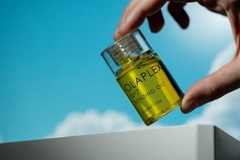Washington State pioneers ban on all formaldehyde-releasing chemicals in cosmetics

Washington State, US, has adopted a rule banning all formaldehyde-releasing chemicals in cosmetics. The new rule, under the Toxic-Free Cosmetics Act (TFCA), marks the first US state to impose a comprehensive ban, restricting all intentionally added formaldehyde-releasing chemicals. It will take effect in 2027.
Formaldehyde is a known carcinogen and has been linked to leukemia, throat and nose cancer, asthma, and skin irritations. The chemical can also influence brain function, cause respiratory problems, and disrupt hormones and reproductive health.
“Washington is leading the way by banning these cancer-causing chemicals in products like skin cream, hair styling gels, and eyelash glue. By taking this action, Washington state is putting people’s health first,” says Cheri Peele, director of government and market policy at Toxic-Free Future.
“Safer solutions are available, and we expect this landmark action to prompt the reformulation of products sold throughout the US.”
“Victory for health”
The ban will take effect on January 1, 2027, giving the industry time to reformulate. To smooth the transition, retailers can sell existing stock until December 31, 2027.
It includes formaldehyde-releasing chemicals for cosmetics manufactured, sold, offered for sale, or distributed in Washington state. It follows a suggested draft submitted in February this year.
The TFCA, enacted in 2023, has banned lead, mercury, methylene glycol, phthalates, triclosan, and PFAS from cosmetics.
“This ban is a victory for science, health, and justice,” says Dr. Ami Zota, tenured associate professor of Environmental Health Sciences at Columbia University Mailman School of Public Health, US.
Exposure injustice
The Washington Department of Ecology reports that salon workers and Black women are the most exposed individuals to the toxins.
 The ban takes effect on January 1, 2027, to give the industry time to reformulate.In May this year, a US study found formaldehyde and formaldehyde-releasing preservatives in daily personal care products used by Black and Latina women. The highest amount of toxins was found in hair and skin care products.
The ban takes effect on January 1, 2027, to give the industry time to reformulate.In May this year, a US study found formaldehyde and formaldehyde-releasing preservatives in daily personal care products used by Black and Latina women. The highest amount of toxins was found in hair and skin care products.
The findings highlight the need for better consumer safety regulations and awareness of racial inequality in the beauty industry. “Formaldehyde has been a long-standing focus of beauty justice,” the study said.
Last month, US lawmakers reintroduced the Safer Beauty Bill Package to ban and regulate dangerous chemicals in personal care products, providing consumer safety — particularly for Black women.
“For decades, the beauty products marketed to Black women and girls and found in our salons have contained toxic, unregulated chemicals — leaving us to disproportionately suffer from increased incidences of cancer, respiratory issues, and adverse reproductive outcomes,” said one of the representatives. Further arguing that this isn’t a coincidence, but exploitation.
Professor Zota says formaldehyde and formaldehyde-releasers are well-documented hazards that no one should be exposed to in the products they use every day.
“This action especially matters for women of color and salon workers who face the highest exposures – and it should inspire policymakers across the country to take similar steps to protect their communities,” she details.













